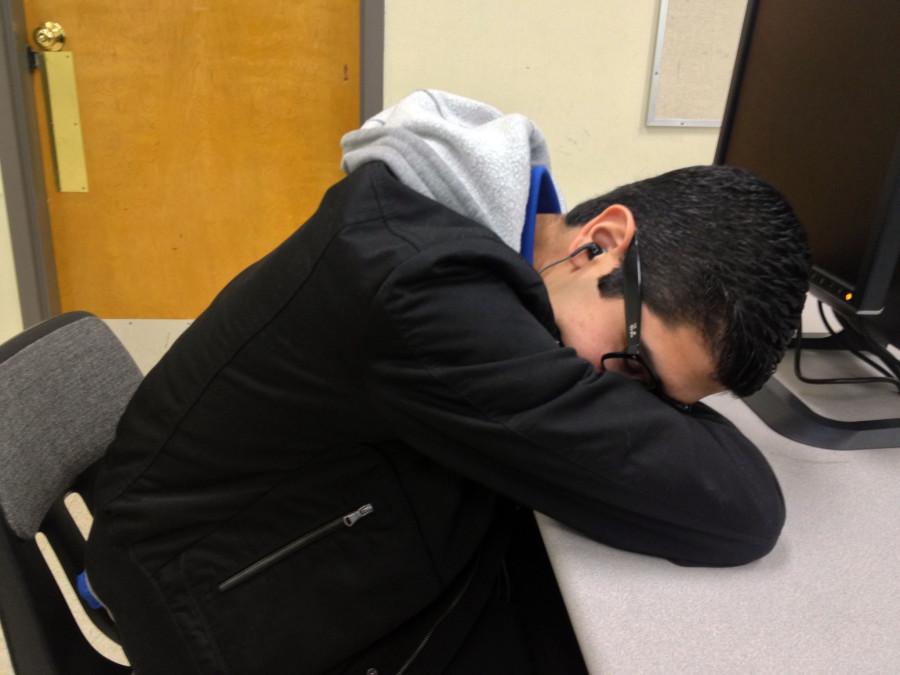Story by Cat Cueva
Staff Writer
Impaired coordination, faulty memory, and increased risk for Alzheimer’s disease. According to American Psychological Association, these are the risks taken everyday by people who neglect their sleep.
And students are some of the most common offenders.
Many high school students don’t see sleeping as an important factor in health and learning. Studying and getting last minute work done seems to be a higher priority.
“I probably get about three hours of sleep every night,” sophomore Patrick Cunanan said. “It is extremely hard getting more when I have so much homework and studying to get done.”
Students also don’t realize that studying and sleeping go hand in hand, because the brain needs a break to collect thoughts and prepare to retain information permanently. Studies conducted by the APA show that people who repeatedly get fewer than eight hours of sleep every night show major drops in connectivity and tend to lose concentration.
“I have tried studying instead of sleeping and the results were not as effective as I thought they’d be,” Cunanan said. “As soon as I started my test, I found myself second guessing things I was sure I knew . To top it off, I was so sleepy too.”
Though some students can manage to get through exams with less of a challenge, the rest of the day still awaits them.
“I was extremely tired after my test. My head was even starting to hurt,” sophomore Nathan George said. “But I got through it and felt a sense of relief, that was until I realized I still had Honors Chemistry, AP Euro, and Latin to get through.”
The amount of sleep students get can either hurt or help them. A minimum of eight hours of sleep every night is recommended by APA. It can make class time more bearable, studying less of a nuisance, and life a little less stressful.
“There are two different types of sleep, regular sleep and a deeper sleep, known as REM sleep,” Learning Specialist Brian Pedroche said. “During REM sleep, your body begins to recover from the day, so if you’re not getting enough REM sleep, you’re not preparing for your next day.”
Lack of sufficient sleep can impair judgement, and mood for both students and adults.
“Well, when I don’t get enough sleep I know my body is physically tired, even if I am not sleepy,” Pedroche said. “When you don’t get enough sleep, you have a lack of motivation. That’s why I would rather have students study a little bit every night and not study the night before, instead of studying all night before a test.”


